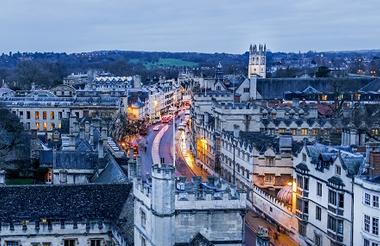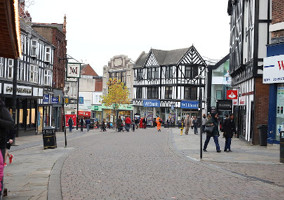In recent weeks, local protestors, online commentators and Conservative MPs have expressed their concerns about the possibility of “15-minute cities” spreading across the country.
The outrage aimed at the “international socialist concept” set to “take away our freedoms” has gained more press coverage than the idea itself.
But what exactly are 15-minute cities and what could they mean for charities?
A reasonable proposal?
The basic idea is that urban areas should provide all essential services including work, leisure facilities, healthcare and shops within a 15-minute walk or cycle ride for everyone living there.
And according to Conservative MP for Don Valley Nick Fletcher, Ultra Low Emission Zone (ULEZ), such as the one being expanded in London, were the first step towards the “international socialist concept” of 15-minute cities “or 20-minute neighbourhoods”.
This is despite the first ULEZ in central London being announced by Boris Johnson when he was mayor.
Fletcher warned that 15-minute cities “will take away your personal freedoms” and urged a debate on local councils like Oxford, Bristol and Sheffield that are exploring the concept.
Oxfordshire County Council and Oxford City Council reported that their staff and councillors had been “subjected to abuse” due to their proposal to install traffic filters as a trial on six roads in the city.
In a joint statement, the local authorities said local residents had confused the county’s traffic filter policy with the city’s 15-minute neighbourhoods proposal in its Local Plan 2040.
“For the benefit of Oxford residents, what we are aiming to do is to ensure that areas of the city such as Barton, Blackbird Leys and Rose Hill have all the essential services that areas such as East Oxford and Jericho already have,” it said.
Meanwhile, organisations including anti-racism charity Hope Not Hate have warned that 15-minute cities have become the latest target for conspiracy theorists convinced that there is an elite cabal pulling the strings of world events.
Opportunities for charities
Ed Wallis, director of policy and engagement at Locality, said local charities could play an important role in the move towards 15-minute cities, given the services and activities they provide to their community.
“I think there’s definitely an opportunity for local community organisations,” said Ed Wallis, director of policy and engagement at Locality.
“Something that we’ve been talking about is how those locally rooted neighbourhood-based organisations do provide the building blocks for thriving neighbourhoods either directly through the things that they provide or by connecting up with a range of other activities and opportunities.
“So, for example, lots of communities and organisations own community assets, so they can provide access to community spaces. Through those assets, they quite often provide flexible workspaces. So, people can work locally or if they’re often working from home but want somewhere to connect with people, then you've got that on your doorstep.”
John Wilson, project manager at Community Matters (Yorkshire) said the 15-minute city policy idea could benefit charities.
But he said the concept would be difficult to realise in parts of the country with less dense populations than places like Oxford and Bristol.
“The whole idea about putting place at the centre of what you're going to do is brilliant if you have actually got places that you can use to do that,” he said.
“And I think with some joined-up thinking that this could be potentially quite interesting.”
More volunteering?
One potential benefit of people having quicker access to essential amenities could be that they have more time to volunteer. Spending more time in their local community could also encourage people to become more involved in its voluntary organisations.
“Going back to the pandemic, we did see that people were having more time and people were getting more involved in local activities. And while a lot of that has maintained, there has been a drop off as people returned to work and a more busy commuting schedule,” said Wallis.
“So, I think the opportunity of focusing the attention around those neighbourhood-based organisations and harnessing the opportunities to get people involved in the place that they live and build that attachment, build the connections with local people. It feels like that’s exactly what can build that sense of connection and bring those volunteering opportunities.”
“A portion of people are working more from home,” said Wilson. “And yet, maybe there’s more opportunity for more localised volunteering, which would be terrific.”
Disadvantaged neighbourhoods
Wallis said most of Locality’s local community members were based in disadvantaged communities and that a 15-minute city policy could build on the relationships that have already been formed there.
“The opportunity here is about focusing on those different neighbourhoods, recognising that they will all have their own unique strengths and opportunities whilst experiencing their own challenges and working with the community to build on those strengths where they exist, and that expertise, and providing the resources to overcome the challenges,” he said.











